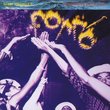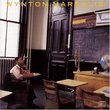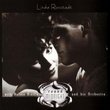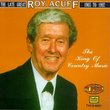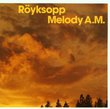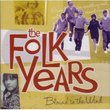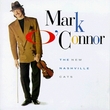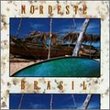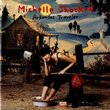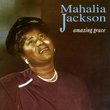| All Artists: Various Artists Title: Incitation to Desire: Tangos for Yvar Mikhashoff (1945-1993) Members Wishing: 1 Total Copies: 0 Label: New Albion Records Release Date: 11/24/2009 Genres: International Music, Classical Styles: Latin Music, Tango, Ballets & Dances, Ballets, Chamber Music, Forms & Genres, Short Forms, Sonatas, Historical Periods, Modern, 20th, & 21st Century, Instruments, Keyboard, Reeds & Winds Number of Discs: 1 SwapaCD Credits: 1 UPC: 022551007321 |
Search - Various Artists :: Incitation to Desire: Tangos for Yvar Mikhashoff (1945-1993)
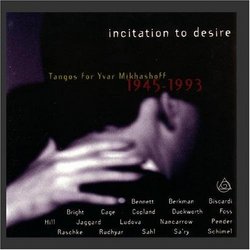 | Various Artists Incitation to Desire: Tangos for Yvar Mikhashoff (1945-1993) Genres: International Music, Classical
Yvar Mikháshoff's Incitation To Desire by Various Artists |
Larger Image |
CD DetailsSynopsis
Album Description Yvar Mikháshoff's Incitation To Desire by Various Artists Similarly Requested CDs
|
CD ReviewsMany facets of the Tango, and a fine tribute to Yvar Mikhash Discophage | France | 11/03/2007 (4 out of 5 stars) "Yvar Mikhashoff was born in 1941 and died of Aids in 1993. He was deeply involved in the contemporary music scene, as composer, pianist, professor of music (at the University of Buffalo), commissioner of new works, producer of concerts, artistic director of numerous festivals. He made various transcriptions for two pianos or chamber ensemble of compositions of Nancarrow, which can be heard on Nancarrow: Pieces Nos. 1 & 2; ¿Tango?; String Quartet No. 1 and Conlon Nancarrow: Studies for Player Piano (arranged for Chamber Orchestra) / Piece No. 2 for Small Orchestra / Trio / Sarabande & Scherzo. Among his centers of interests were the popular dance forms (as a young man he had worked as a professional ballroom dancer). In the seventies he recorded a two-volume Waltz project for Nonesuch (not reissued on CD), and in the eighties he began assembling short tangos by commissioning composer friends: at the end, he had a collection of over a hundred, and performed 8-hour martathon concerts devoted to tango. This recording of a few samples (19 of them, with Cage's Perpetual Tango given in two out of the three versions he wrote) was made in May 1992, shortly before his untimely death.
Some of these are old pieces that, in response to Mikhashoff's request, the composer pulled out of the drawer in which they had been gathering dust (Copland, Rudhyar) but most are indeed new works. The moods and styles are varied; there's the dreamy (Bright's appropriately titled "Tango Dreaming", Foss' "Curiculum Vitae Tango", Hill's Japan-inspired "Tango No Tango"), the pointillistically jaunty (Nancarrow's "Tango?"), the playful (Raschke "Tango auf drei Beinum" - Tango on three legs - , Pender's "Ms Jackson Dances for the People", Berkman's "Thorn Torn Lips"), the meditative (Copland, Rodney Bennett), the pointillistically enigmatic (Cage's "Perpetual Tango", in fact a rewriting of a wonderfully terse tango by Satie - #17 of Sports et Divertissements - but unrecognizable really), the nostalgic (Rudhyar, "Tango d'Antan", Tango from the past), the echt tango-woeful (Schimmel's "Fromage dangereux" - Dangerous Cheese, title unexplained), the merrily repetitive peal of bells (Duckworth), the Restaurant Romantic (Sahl's "Tango from the Exiles' Café") . Chester Biscardi's "incitation to desire" is the most romantically florid and lends its title to the collection, after the hilarious entry in an old, 1944 Groves Dictionary of Music, deeming the dance "unpresentable" to "a polite audience". In some of these compositions, the traditional, cliched tango is very immediately present and recognizable (Rudhyar, Sahl, Schimmel...), and Pender even starts with the Habanera rhythm from Bizet's Carmen. But, as in the small selection presented by Ursula Oppens in American Piano Works, my favorites are those that transcend their origin and take the tango as a springboard to imagination and invention rather than stay bogged down in it: Rodney Bennett (a tango elaboration of the main theme from Debussy's Syrinx for solo flute), Foss (enigmatic, ending with harped strings alla Cowell), Jaggard (ever wilder flourishes on the tango's fourth beat), the pointillistic and enigmatic Laszlo Sa'ry, and Nancarrow of course. In comparison to Oppens or Seltzer on Nancarrow: Pieces Nos. 1 & 2; ¿Tango?; String Quartet No. 1, Mikhashoff plays "Tango ?" in a wonderfully pointillistic manner too, so much so that you might think Sa'ry's Tango has a second movement, as Nancarrow is on the succeding track. Duckworth's "Tango Voices" is as good as anything written by John Adams, if you enjoy that kind of style. Mishakhoff shares four pieces with Oppens (Nancarrow, Jaggard, Foss, Sahl). Compared to her he is usually slower, and cleaner, more articulated in his runs. There is nothing really essential here, but it is a pleasurable collection, and a fine tribute to Mikhashoff. For another one, see Opera: Virtuoso Fantasies, Paraphrases & Transcriptions. " |

 Track Listings (19) - Disc #1
Track Listings (19) - Disc #1